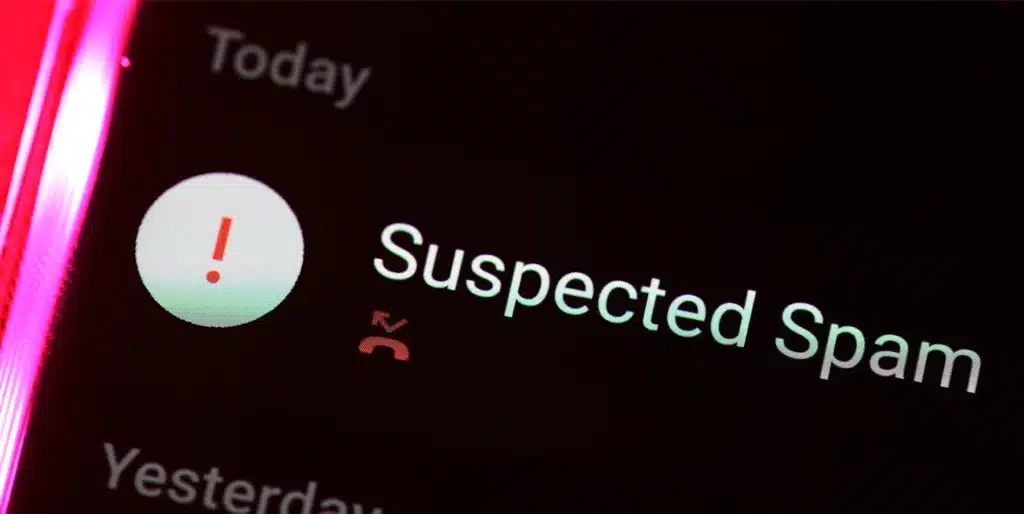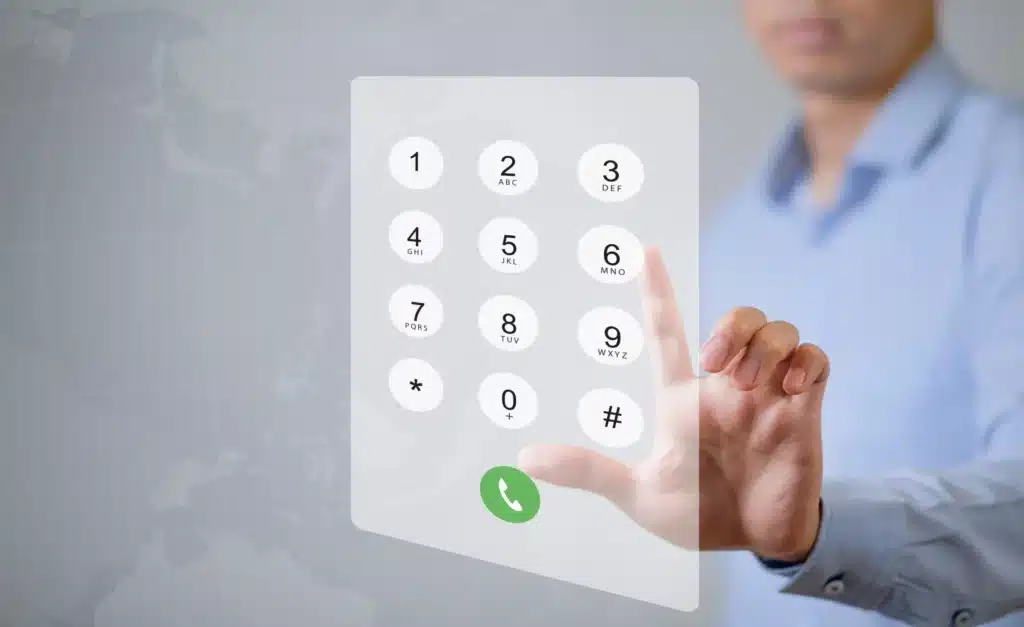Have you ever received a phone call from an unfamiliar number and hesitated to answer it, afraid that it might be a scammer? With the rise of technology and digital communication, scammers have found new ways to deceive people into giving away their personal information or money. According to the Federal Trade Commission (FTC), in 2023, there were over 4.7 million reports of fraud and scams, resulting in almost $3.3 billion lost by victims. Fortunately, there are ways to identify and avoid these malicious calls before becoming a victim. In this article, we will discuss how you can tell if a phone call is coming from a scammer and what steps you can take to protect yourself.
How To Tell If a Phone Call Is Coming From a Scammer
Here are seven simple and effective methods to determine if an incoming call is from a spammer:
1. Screen Incoming Calls with an AI-powered Call Assistant
One of the easiest ways to identify spam calls is by using an AI-powered call assistant. These apps use machine learning algorithms to analyze incoming calls and provide a warning if the call is coming from a known scammer. They also have the ability to automatically block these calls before they can reach you, saving you time and frustration.
2. Check the Number on Special Online Service
A reliable service to conduct this check is Scannero.io. Scannero.io offers a robust reverse number lookup tool that allows you to input a suspicious phone number and check it against their extensive database of known scam numbers. This service is particularly useful for identifying if a call is coming from a spammer as it provides additional information about the suspected number, such as the number of users who have reported the number as spam or the type of scam associated with the number. By using Scannero.io, you can effectively screen your incoming calls and steer clear of potential scams.
3. Search the Phone Number on Google
A simple Google search of the phone number can also provide useful information. If the number has been reported as a scam, there is a high chance that it will show up in the search results. You can also find out if the number belongs to a legitimate business or organization.
4. See If the Phone Number Is Connected to a Social Media Account
Scammers often use fake phone numbers when making calls, but they may not be as careful when creating fake social media accounts. Use the phone number to search for any associated social media profiles, and if you find one, check if it looks legitimate or suspicious.
5. Silence Unknown Callers on Your Smartphone
Most smartphones have a feature that allows users to silence unknown callers. This means that calls coming from numbers not saved in your contacts list will be automatically sent to voicemail. While this may not completely stop spam calls, it can greatly reduce the number of unwanted calls you receive.
6. Listen for Telltale Signs of Common Phone Scams
If you do decide to answer a call from an unknown number, listen carefully for any red flags that might indicate it is a scam. These include callers asking for personal or financial information, demanding immediate action, and offering unrealistic deals or prizes.
7. Use Your Phone Carrier’s Spam Blocker Apps

Many phone carriers offer spam blocker apps that can be downloaded onto your smartphone. These apps use crowdsourced data to identify known spam numbers and block them from reaching you. Check with your phone carrier to see if they offer this service.
What To Do If You Think a Spammer Is Calling
If you think a spammer is calling you, here are some steps you can take to protect yourself:
Remember, staying vigilant and taking proactive measures can help minimize the impact of spam calls and protect yourself from potential scams.
Don’t Answer: The best course of action is to not answer the call. If you answer, it confirms to the spammers that your number is active and may lead to more spam calls in the future.
Report the Call: You can report the spam call to the Federal Trade Commission (FTC) online or by calling 1-877-382-4357. Reporting the call helps authorities track and take action against the spammers.
Register on the Do Not Call Registry: Registering your phone number on the National Do Not Call Registry can help reduce unwanted sales calls from legitimate companies. It’s free to register and can be done online.
Consider Call Blocking: Your phone provider may offer call blocking services or apps that can help filter out spam calls. Check with your provider for available options.
Don’t Trust Caller ID: Scammers can manipulate caller ID information to make it appear as if the call is coming from a trusted source. So, don’t solely rely on caller ID when determining whether a call is legitimate or not.
Conclusion
In conclusion, it is essential to be cautious when receiving calls from unknown numbers and to take steps to protect yourself from potential scammers. By using one or more of the methods mentioned above, you can quickly determine if a call is coming from a scammer and avoid becoming a victim. Remember, if something feels off or too good to be true, it probably is. Stay vigilant and stay safe! So, in this article, we have discussed how you can tell if a phone call is coming from a scammer and what steps you can take to protect yourself. We hope that this information will help you avoid falling prey to these malicious calls.




